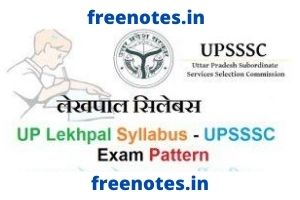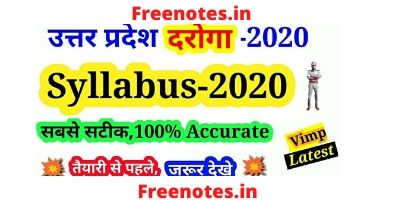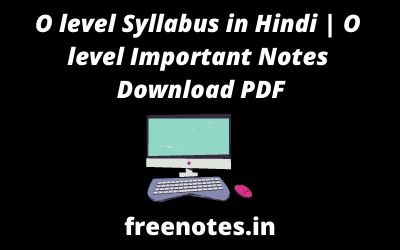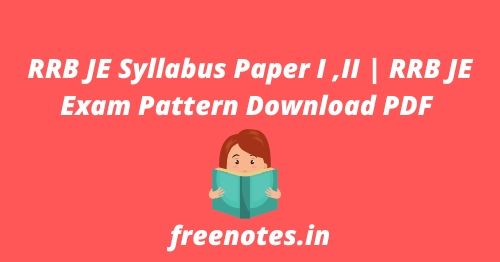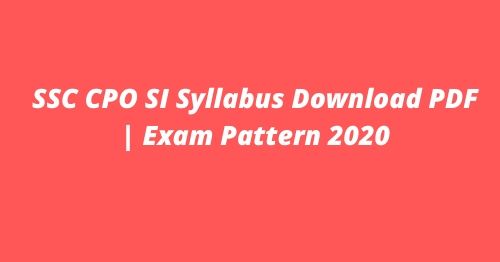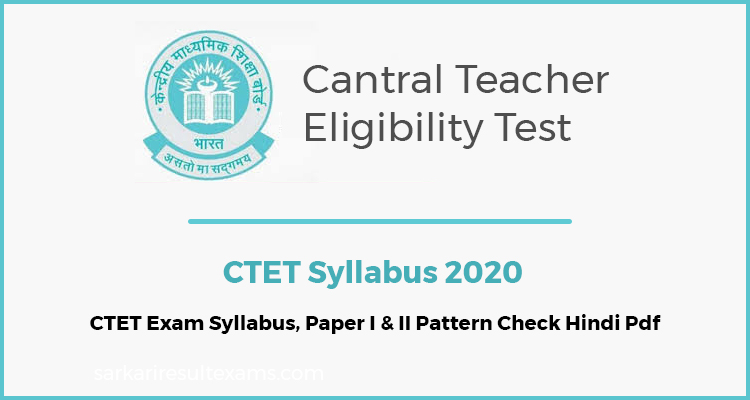UGC NET Syllabus 2020 (Latest): UGC NET Exam is going to be conducted from June 15 to 20, 2020. All the interested candidates can download the UGC NET Syllabus PDF from this article.
We have provided the syllabus for Assistant Professor and Junior Research Fellowship (JRF) or Assistant Professor here.
UGC NET Exam, the exam which tests the eligibility of Indian Nationals for ‘Assistant Professor’ or for ‘Junior Research Fellowship and Assistant Professor’ both in Indian Universities and Colleges. UGC NET Exam Registration has begun from March 16, 2020, and will end on April 16, 2020.
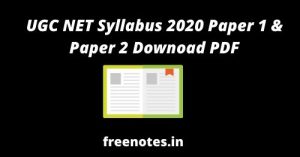
UGC NET Syllabus 2020 Paper 1 Downoad PDF Book
UGC NET Syllabus June 2020
The NTA UGC NET June 2020 Syllabus of Paper 1 consists of Teaching Aptitude, Research Aptitude, Reading Comprehension, Communication, Reasoning (including Maths), Logical Reasoning, Data Interpretation, Information & Communication Technology (ICT), People & Environment, and Higher Education System: Governance, Polity & Administration
While Paper 2 consists of a lot of subjects from which the candidates have to select any 1 from the list of 81 subjects.
Distribution Of UGC NET Syllabus 2020
The UGC NET Syllabus is divided into Paper-I and Paper-II. Here is the exam pattern of Paper 1 and Paper 2:
| Paper | No. of Questions/ Marks | Duration |
| Paper-I: General Aptitude | 50 questions/ 100 marks | 1 Hour |
| Paper-II: Subject Selected by Candidates | 100 questions/ 200 marks | 2 Hours |
| Total | 150 questions/ 300 marks | 3 Hours |
The Paper I or General Aptitude section is a mandatory paper that every candidate has to write. Paper 2 is the one where a candidate has to decide the subject which he/she want to do post-graduation into.
UGC NET Exam Pattern Paper 1
Here is the exam pattern for UGC NET 2020 June Paper 1:
| Sections (MCQ) | Questions | Marks |
| Part I: Teaching Aptitude | 5 | 10 |
| Part II: Research Aptitude | 5 | 10 |
| Part III: Reading Comprehension | 5 | 10 |
| Part IV: Communication | 5 | 10 |
| Part V: Reasoning (including Maths) | 5 | 10 |
| Part VI: Logical Reasoning | 5 | 10 |
| Part VII: Data Interpretation | 5 | 10 |
| Part VIII: Information & Communication Technology (ICT) | 5 | 10 |
| Part IX: People & Environment | 5 | 10 |
| Part X: Higher Education System: Governance, Polity & Administration | 5 | 10 |
| Total | 50 | 100 |
Note:
- Every correct attempt will reward 2 marks.
- There will be no negative marking in the exam.
- The exam duration is 1 Hour.
- Whenever pictorial questions are set for the sighted candidates a passage followed by an equal number of questions should be set for the visually handicapped candidates.
UGC NET Paper-I Syllabus
The main objective is to assess the teaching and research capabilities of the candidates. The test aims at assessing the teaching and research aptitude as well. Candidates are expected to possess and exhibit cognitive abilities, which include comprehension, analysis, evaluation, understanding the structure of arguments, deductive and inductive reasoning.
The candidates are also expected to have a general awareness of teaching and learning processes in the higher education system. Further, they should be aware of the interaction between people, environment, natural resources and their impact on the quality of life.
Here is the detailed UGC NET 2020 June Paper 1 Syllabus:
I. Teaching Aptitude
- Teaching : Nature, objectives, characteristics and basic requirements;
- Learner’s characteristics;
- Factors affecting teaching;
- Methods of teaching;
- Teaching aids;
- Evaluation systems.
II. Research Aptitude
- Research: Meaning, characteristics and types;
- Steps of research
- Methods of research;
- Research Ethics;
- Paper, article, workshop, seminar, conference and symposium
- Thesis writing: its characteristics and format.
III. Reading Comprehension
- A passage to be set with questions to be answered.
IV. Communication
- Communication Nature, characteristics, types, barriers and effective classroom communication.
V. Reasoning (Including Mathematical)
- Number series; letter series; codes;
- Relationships; classification.
VI. Logical Reasoning
- Understanding the structure of arguments;
- Evaluating and distinguishing deductive and inductive reasoning;
- Verbal analogies: Word analogy — Applied analogy;
- Verbal classification;
- Reasoning Logical Diagrams: Simple diagrammatic relationship, multi-diagrammatic relationship;
- Venn diagram; Analytical Reasoning.
VII. Data Interpretation
- Sources, acquisition and interpretation of data;
- Quantitative and qualitative data;
- Graphical representation and mapping of data.
VIII. Information and Communication Technology (ICT)
- ICT : meaning, advantages, disadvantages and uses;
- General abbreviations and terminology;
- Basics of internet and e-mailing.
IX. People and Environment
- People and environment interaction;
- Sources of pollution;
- Pollutants and their impact on human life, exploitation of natural and energy resources;
- Natural hazards and mitigation
X. Higher Education System: Governance, Polity and Administration
- Structure of the institutions for higher learning and research in India: formal and distance education professional/technical and general education; value education: governance, polity, and administration; concept, institutions and their interactions.
UGC NET Syllabus for Paper-I
UGC NET paper-I (General Paper on Teaching and Research Aptitude) is common and mandatory for all candidates. Check the complete UGC NET paper-I syllabus 2020 below:
| UGC NET Paper-I Units | UGC NET Paper-I Topics |
|---|---|
| Unit-I: Teaching Aptitude |
|
| Unit-II: Research Aptitude |
|
| Unit-III: Comprehension |
|
| Unit-IV: Communication |
|
| Unit-V: Mathematical Reasoning and Aptitude |
|
| Unit-VI: Logical Reasoning |
|
| Unit-VII: Data Interpretation |
|
| Unit-VIII: Information and Communication Technology (ICT) |
|
| Unit-IX: People, Development and Environment |
|
| Unit-X: Higher Education System |
|
Best UGC NET Books for Paper-I Preparation
Go through the list of important books recommended by toppers for preparation of UGC NET paper-I below:
| UGC NET Paper-I Book | Author |
|---|---|
| Trueman’s UGC NET/SET General Paper I | M Gagan and Sajit Kumar |
| NTA UGC NET/SET/JRF Paper I: Teaching and Research Aptitude by Pearson | KVS Madaan |
| General Paper-1 UGC NET/JRF/SLET – Teaching & Research Aptitude | Arihant Experts |
| Upkar’s UGC-NET/JRF/SET Teaching And Research Aptitude (General Paper – I) | Dr Lal Jain and Dr KC Vashistha |
UGC NET Syllabus 2020 Download PDF Book

- 100 CCC Computer Question Exam in Hindi PDF 2019
- English Grammar Book Lucent Download PDF
- RRB NTPC Previous Year Paper PDF Book Download
- चंद्रयान मिशन 2 Hand written Notes for exam pdf 2019
- English Grammar Book Lucent Download PDF
- RS Agarwal Reasoning Book Verbal & Non-Verbal in Hindi PDF
- Maths Mirror Tricky book in Hindi PDF 2019 Download
जरुर पढ़ें :- दोस्तों अगर आपको किसी भी प्रकार का सवाल है या ebook की आपको आवश्यकता है तो आप निचे comment कर सकते है. आपको किसी परीक्षा की जानकारी चाहिए या किसी भी प्रकार का हेल्प चाहिए तो आप comment कर सकते है. हमारा post अगर आपको पसंद आया हो तो अपने दोस्तों के साथ share करे और उनकी सहायता करे.
Disclaimer :- Freenotes.in does not claim this book, neither made nor examined. We simply giving the connection effectively accessible on web. In the event that any way it abuses the law or has any issues then sympathetically mail us.
